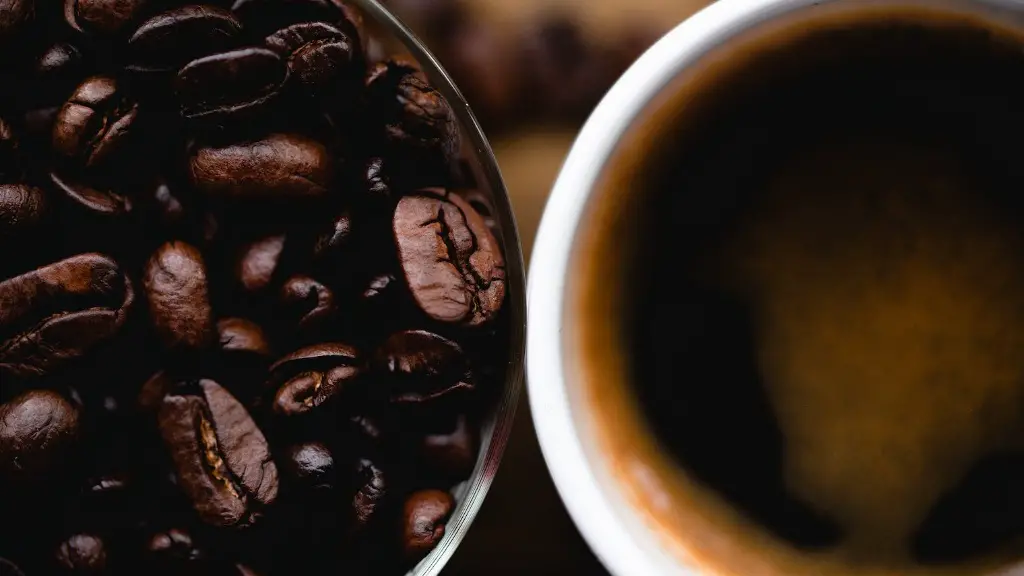Introduction
Caffeine is often consumed for its energizing effects and its ability to increase focus and alertness. Caffeine is readily accessible and can be found in a variety of foods and drinks, including coffee, tea, and energy drinks. Before undergoing an ECG or electrocardiogram, it is important to consider whether or not one should drink coffee as it may interfere with the accuracy of the test results.
Knowledge Of Caffeine
Caffeine is the most popular drug consumed in the world and is found in coffee, tea, cocoa, cola, chocolate, and some medications. It stimulates the central nervous system, promoting wakefulness and increasing alertness. According to the Mayo Clinic, it is safe for adults to consume up to 400 milligrams of caffeine daily in healthy doses. However, caffeine has a wide range of physiological effects that vary depending on the person’s metabolism, frequency of use, amount delivered, and genetics.
Effects Of Coffee Before An ECG
Drinking coffee before an ECG may interfere with the results of the test depending on the amount and type of caffeine consumed. Caffeine can increase blood pressure and heart rate. According to Mayo Clinic, high doses of caffeine can cause palpitations, which may be misinterpreted when reading the results of the ECG. If a person is taking any medications that have an effect on their heart rate, drinking coffee before an ECG is not recommended.
It is also important to consider the amount of caffeine consumed when drinking coffee prior to taking an ECG. The American Heart Association recommends limiting caffeine intake to 300 milligrams or less. One 8-ounce cup of coffee contains 95 milligrams of caffeine, so if a person drinks 2 or 3 cups of coffee before taking the ECG, it is best to wait a few hours before taking the test to ensure the results are accurate.
Reasons To Avoid Caffeine
One may decide to avoid caffeine altogether before taking an ECG for various reasons. First, it should be noted that caffeine is a diuretic, which can lead to dehydration. Dehydration can cause dizziness and may lead to an irregular heartbeat, which can affect the accuracy of the ECG results. Furthermore, caffeine can cause anxiety and, therefore, impact a person’s blood pressure and heart rate.
Additionally, the caffeine in coffee can interfere with medications, such as those for blood pressure, heart disease, mental health, and diabetes. It is important to check with a doctor or pharmacist if taking any medication prior to drinking coffee before an ECG.
Alternatives To Caffeine
If one wants to increase their alertness before an ECG, they can try drinking herbal tea or plain water. Herbal tea will provide some of the energizing effects of caffeine without the deleterious effects it can have on the body. Additionally, plain water will help to keep the body hydrated and ready for the test.
If one is looking for an energy boost or a way to stay alert before an ECG, they can try exercising. Physical activity has been proven to be a healthy and effective way to increase energy levels and alertness. A brisk walk, some stretching, or a light jog are all great ways to increase energy levels without the interference of caffeine.
Advantages Of Eating Before An ECG
While it is not necessary to eat before an ECG, it can be beneficial. Eating a small meal can provide the energy needed to stay alert during the test. It can also help to alleviate any dizziness or lightheadedness caused by dehydration. Additionally, it is important to note that having some food in the stomach can help to stabilize blood sugar levels, which can affect heart rate.
Effects Of Alcohol And Smoking
It is important to avoid alcohol and smoking before an ECG as both can affect the results of the test. Alcohol can interfere with the accuracy of the ECG results and can also put one’s life in danger if levels are too high. Smoking also affects heart rate and can interfere with the results of the ECG.
Considerations Before An ECG
Prior to taking an ECG, it is important to consider the individual’s caffeinated beverage consumption, whether or not they have taken any medication, and if they have consumed alcohol or smoked recently. Additionally, some foods may disrupt the accuracy of an ECG, so it is important to avoid certain foods and drinks prior to the test. All of these considerations will ensure the results of the ECG are accurate and that the individual is safe during the test.
Conclusion Of Caffeine And ECG
All in all, it is understandable to have concerns regarding drinking coffee or consuming caffeine before an ECG. However, drinking coffee or other caffeinated beverages with little to no sugar should be safe if consumed in moderation. However, if one is taking any medications, it is best to check with a doctor or pharmacist prior to drinking coffee. Additionally, it is important to consider the amount of caffeine consumed and to avoid consuming alcohol or smoking before the test. Taking all of these factors into consideration will help to ensure accurate results from the ECG and keep the individual safe.
Effects Of Exercise Before An ECG
Exercise, such as walking or light jogging, can help to increase energy levels before an ECG. It is important to keep in mind that exercising too much can interfere with the results of the test due to increased heart rate. Additionally, it is important to note that strenuous physical activity may increase the risk of injury, so it is best to avoid any high-intensity physical activities before taking the test.
Some Foods To Avoid
Prior to taking an ECG, it is important to avoid certain foods and drinks as they can interfere with the accuracy of the results. Foods high in potassium and sodium should be avoided because they can impact the ECG results. Additionally, certain fruits and vegetables should be avoided, such as bananas, oranges, potatoes, and spinach, as they contain high levels of potassium.
Managing Stress Before An ECG
It is important to consider one’s emotional state before taking an ECG. Stress can increase heart rate and blood pressure, which can affect the accuracy of the results. It is recommended to take some time to relax and focus on calming activities before the test. Engaging in breathing exercises, light stretching, and meditation can help to reduce stress before the test.
Professional Guidance
When taking an ECG, it is best to consult a doctor or healthcare professional. A doctor can provide personalized advice and guidance, as well as help to ensure that the ECG is taken in the safest and most effective way. Additionally, they will be able to provide information regarding dietary changes, medications, and exercise that may be necessary prior to taking an ECG.



